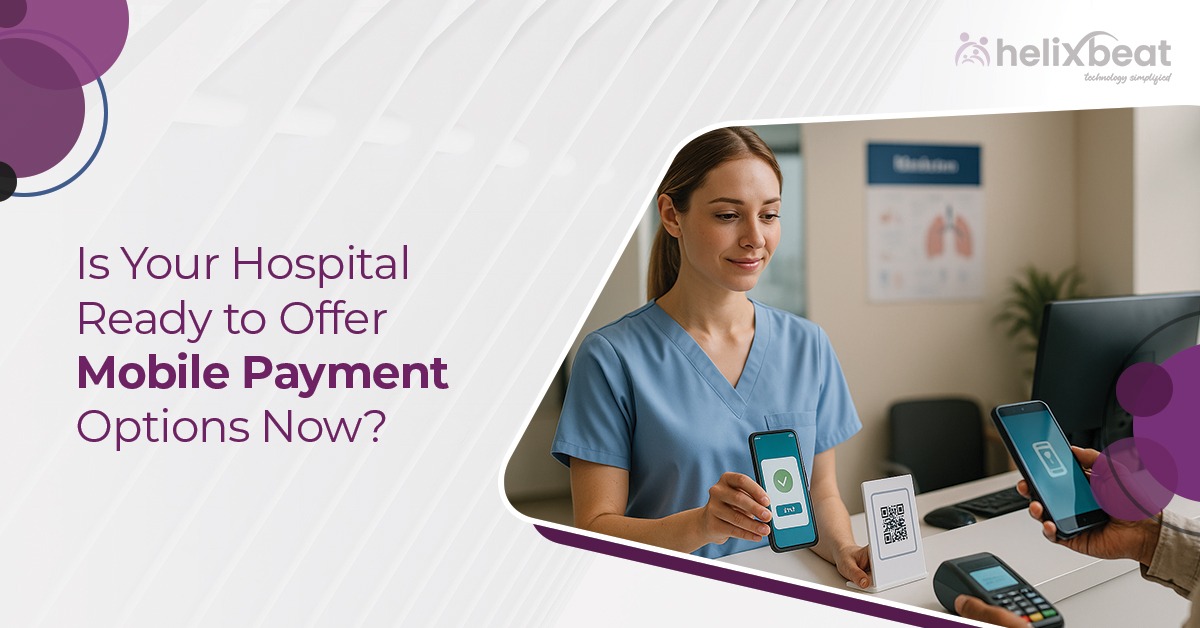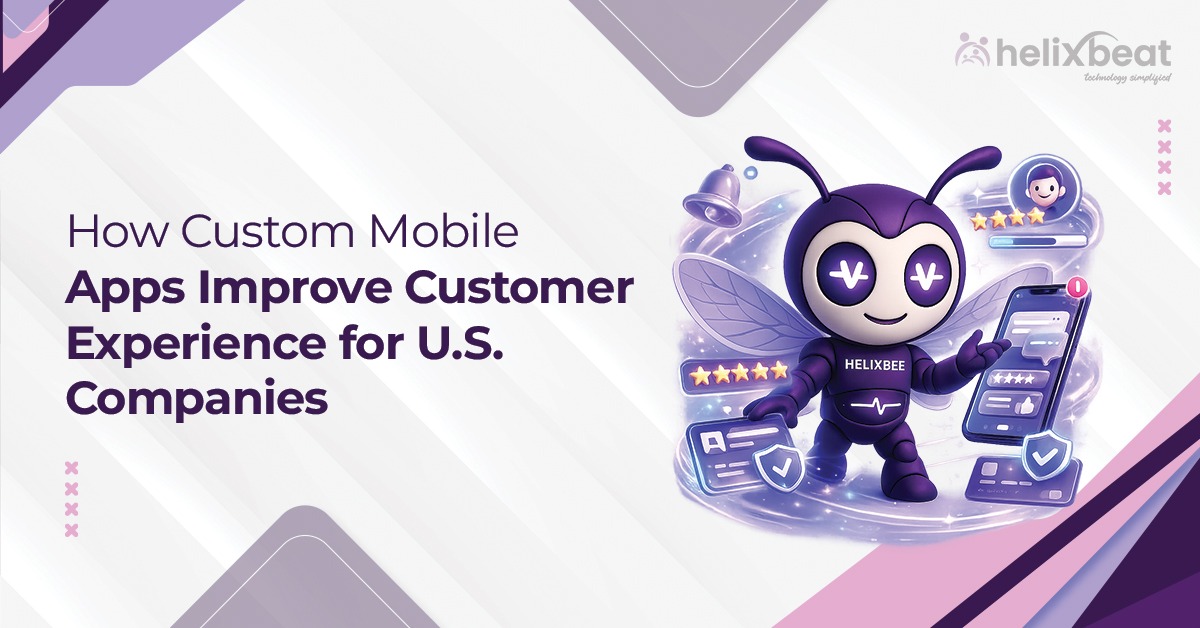Paying medical bills has never been anyone’s favorite part of the healthcare experience. Long waits, confusing invoices, and limited payment methods can frustrate even the most patient patients. But today, things are changing. Just like ordering food or booking a cab, people now expect to pay their hospital bills with a few taps on their phone.
That’s where mobile payment options come in.
As a healthcare provider, your ability to adapt to these expectations isn’t just about convenience—it’s about staying relevant, building trust, and getting paid faster. Whether you’re running a large hospital or managing a smaller clinic with tight resources, offering seamless digital payments through a payment gateway for small business can be a game-changer.
But how do you know if your hospital is truly ready?
Here’s a quick, honest checklist to help you find out. If you’re checking more “No” than “Yes,” it might be time to rethink your current payment solutions for healthcare providers—before your patients decide to look elsewhere.
Table of Contents
Why Mobile Payment Options Matter in Healthcare
Patients today expect speed, transparency, and control over their finances. When it comes to paying for medical services, long billing cycles, confusing invoices, and limited payment methods just won’t cut it anymore. That’s where mobile payment options come in.
1. Patient Expectations Have Changed
A growing number of Americans prefer managing bills through mobile apps or digital wallets. Whether it’s paying for a cup of coffee or hospital co-pay, they want it fast, secure, and frictionless. Hospitals still stuck in outdated billing cycles risk frustrating patients and losing trust.
2. High-Deductible Plans Are the New Normal
With the rise of high-deductible health plans, more patients are responsible for a bigger share of their medical bills. This means your hospital needs to collect directly from patients—and the easier you make that process, the faster you get paid. Offering mobile payment options simplifies that process significantly.
3. Cash Flow Improvements for Hospitals
Delayed payments are a persistent challenge for hospitals. Mobile payment systems offer real-time transactions, automated reminders, and recurring billing options, all of which help reduce outstanding balances and improve overall cash flow.
Challenges Without Mobile Payment Options
If your hospital hasn’t adopted mobile payment options, you’re likely experiencing these pain points:
- Slow collections from patients
- Increased manual workload for your admin staff
- Limited payment flexibility
- Higher rate of unpaid bills
- Poor patient satisfaction scores
- Paper billing clutter and inefficiencies
With healthcare becoming more consumer-driven, these inefficiencies can harm your hospital’s brand and bottom line.
How Mobile Payment Options Transform the Healthcare Experience
The adoption of mobile payment options leads to real, measurable benefits for both patients and providers. Here’s how:
1. Seamless, Multi-Channel Payments
Whether your patients prefer paying via Apple Pay, Google Pay, debit card, UPI, or bank transfer, mobile payment options support all methods. Offering flexibility means removing barriers to payment.
2. Integration With Existing Systems
Modern payment solutions for healthcare providers, like PayNova, integrate directly with your Electronic Health Record (EHR) and Practice Management Systems (PMS). This ensures accurate billing, automatic data pull, and real-time updates on payment status.
3. Automated Billing & Reminders
Forget chasing down payments manually. Mobile platforms can automate the entire process—sending bills, scheduling reminders, and processing transactions. This reduces administrative burden and speeds up collections.
4. Patient Portals with Transparency
Give your patients clarity with itemized digital bills, access to previous transactions, and live support. A user-friendly mobile interface boosts trust and keeps your billing process transparent.
Why Small Hospitals Need This Too
Many smaller healthcare centers hesitate to invest in mobile payment systems, thinking they’re “too small” for such technology. That’s simply not true. In fact, mobile payment options are crucial for payment gateway for small business settings like community hospitals and outpatient centers.
A scalable payment gateway for small business like PayNova ensures:
- Affordability with flexible pricing
- Plug-and-play integration with existing software
- HIPAA & PCI-DSS compliance
- Customization according to your facility’s size and scope
In smaller hospitals, even small improvements in payment processes can make a big difference to the bottom line.
Key Features to Look for in a Mobile Payment System
When evaluating payment solutions for healthcare providers, be sure to choose a system that offers the following:
- Multiple Payment Options
Supports all major payment methods including digital wallets, credit/debit cards, bank transfers, and ACH.
- Automated Billing
Enables automatic invoicing, reminders, and recurring payments.
- Regulatory Compliance
Must be HIPAA and PCI-DSS compliant to ensure data security and patient trust.
- Real-Time Insurance Verification
Reduces claim denials and payment delays by verifying insurance coverage instantly.
- Analytics & Reporting
Offers dashboards and detailed reports on revenue, pending payments, and claims.
- Patient Self-Service Portal
Empowers patients to manage bills, view payment history, and set up auto-pay—right from their phones.
- Telehealth Support
Integrates with remote consultation platforms to support digital billing for virtual care services.
PayNova: A Trusted Payment Gateway for Healthcare Providers
PayNova is purpose-built for the healthcare industry. Whether you’re a major hospital or a small clinic looking for a payment gateway for small business, PayNova delivers.
Here’s how PayNova empowers your hospital with mobile payment options:
- All-in-One Platform: Consolidates patient and insurance payments in a single dashboard.
- Faster Reimbursements: Speeds up insurance claims with automation.
- Zero Paperwork: Supports completely digital payment flows.
- Smart Notifications: Reminds patients about upcoming or overdue payments.
- Flexible Payment Plans: Enables patients to pay large bills in installments.
- High-Security Standards: HIPAA, PCI-DSS, and end-to-end encryption to protect sensitive data.
Case in Point: Hospitals Already Reaping the Benefits
Hospitals that have implemented mobile payment options have reported:
- 30% faster collections from patients
- 50% drop in overdue balances
- 40% fewer billing disputes
- Higher patient satisfaction scores
- Reduced operational costs due to automation
These are not just statistics—they’re signs of a healthcare system becoming smarter and more patient-centric.
Common Objections (And Why They Don’t Hold Up)
Let’s break down some myths:
- “We’re too small for this.”
Truth: PayNova is a payment gateway for small business and large hospitals alike. It’s scalable, simple, and affordable.
- “We don’t have the IT support.”
Truth: Integration is seamless. PayNova’s team handles setup and offers ongoing support.
- “Patients won’t use it.”
Truth: Patients prefer mobile payments. Give them options, and you’ll see usage skyrocket.
Is Your Hospital Ready? Let’s Find Out.
In a digital-first world, patients expect healthcare to be as seamless as ordering a cab or shopping online. If your hospital isn’t offering mobile payment options, you may already be falling behind. Use this simple checklist to evaluate where you stand:
Can your patients pay via mobile from anywhere?
If not, you’re limiting access and convenience. Today’s patients want the freedom to pay on the go through mobile wallets, apps, or links sent via SMS or email.
Do you offer multiple payment options beyond cards?
A strong payment system includes credit/debit cards, digital wallets, ACH, and UPI. Limiting payment methods can mean delayed or missed payments.
Are your billing processes automated and error-free?
Manual billing invites mistakes. Automated billing through a reliable payment gateway for small business or large healthcare systems ensures accuracy and faster collections.
Is your staff spending less time chasing payments?
If your team is stuck following up on unpaid bills, it’s time to streamline. Automation and reminders, key features of advanced payment solutions for healthcare providers, reduce the follow-up burden.
Can patients access, view, and pay bills through a mobile portal?
A self-service portal with transparent billing improves the patient experience and speeds up payment.
Are you HIPAA and PCI-DSS compliant in your payment handling?
Compliance isn’t optional—it’s essential. Your mobile payment options must protect patient data and meet strict healthcare regulations.
If you answered “No” to more than two of these, your hospital could be losing money, time, and patient trust. With PayNova’s payment solutions for healthcare providers, you can modernize your system and offer the convenience, speed, and security your patients expect.
Final Thoughts
Mobile payment options are not just a tech upgrade—they’re a patient satisfaction strategy, a financial efficiency tool, and a competitive necessity. As healthcare moves toward personalization, accessibility, and digital-first experiences, hospitals that adopt smart payment systems will thrive.
Whether you’re a regional hospital or a growing clinic, PayNova gives you the tools to simplify payments, improve patient satisfaction, and optimize revenue.
So, is your hospital ready to offer mobile payment options now?
Because your patients already are.
Need help making the switch? Contact PayNova today and empower your hospital with seamless, secure, and smart payment solutions.
FAQs
1. Why should hospitals offer mobile payment options?
Mobile payment options improve patient convenience, speed up collections, reduce billing errors, and enhance overall satisfaction.
2. Are mobile payments secure for healthcare use?
Yes. Solutions like PayNova are HIPAA and PCI-DSS compliant, ensuring data security through encryption and fraud prevention protocols.
3. Can small hospitals implement mobile payment options?
Absolutely. Platforms like PayNova offer scalable solutions, making them an ideal payment gateway for small business and clinics.
4. What payment methods do mobile systems support?
Most support credit/debit cards, ACH, UPI, Apple Pay, Google Pay, and other digital wallets for a seamless patient experience.
5. How do mobile payments help with overdue patient bills?
Automated reminders, recurring billing, and easy mobile access encourage timely payments and reduce outstanding balances.
6. Will mobile payment systems integrate with our EHR/PMS?
Yes. PayNova integrates with most Electronic Health Record and Practice Management Systems for accurate billing and streamlined operations.
7. What are the key features to look for in a healthcare payment system?
Look for automation, real-time insurance verification, detailed analytics, flexible payment options, and compliance with healthcare regulations.














